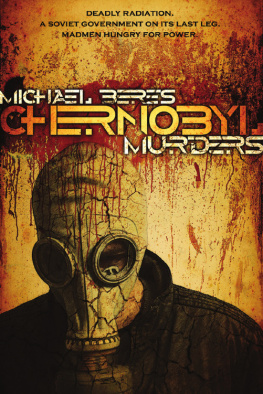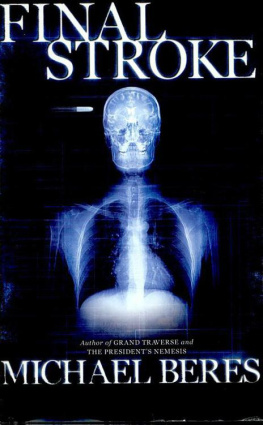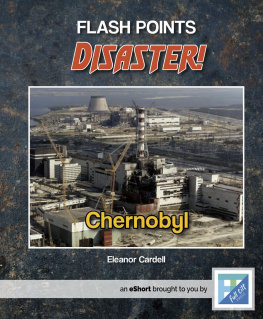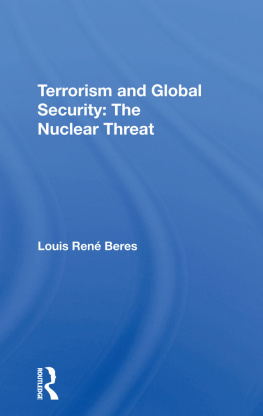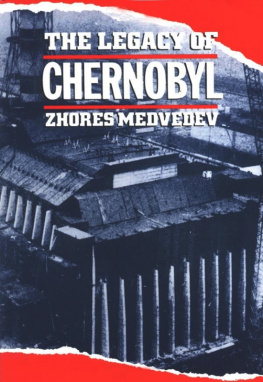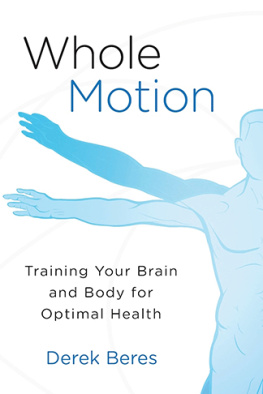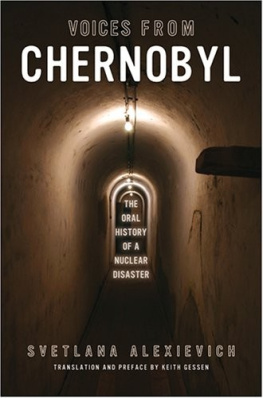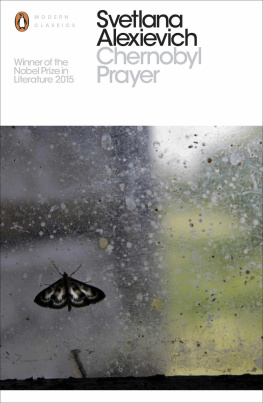Michael Beres - Chernobyl Murders
Here you can read online Michael Beres - Chernobyl Murders full text of the book (entire story) in english for free. Download pdf and epub, get meaning, cover and reviews about this ebook. genre: Detective and thriller. Description of the work, (preface) as well as reviews are available. Best literature library LitArk.com created for fans of good reading and offers a wide selection of genres:
Romance novel
Science fiction
Adventure
Detective
Science
History
Home and family
Prose
Art
Politics
Computer
Non-fiction
Religion
Business
Children
Humor
Choose a favorite category and find really read worthwhile books. Enjoy immersion in the world of imagination, feel the emotions of the characters or learn something new for yourself, make an fascinating discovery.

- Book:Chernobyl Murders
- Author:
- Genre:
- Rating:4 / 5
- Favourites:Add to favourites
- Your mark:
- 80
- 1
- 2
- 3
- 4
- 5
Chernobyl Murders: summary, description and annotation
We offer to read an annotation, description, summary or preface (depends on what the author of the book "Chernobyl Murders" wrote himself). If you haven't found the necessary information about the book — write in the comments, we will try to find it.
Chernobyl Murders — read online for free the complete book (whole text) full work
Below is the text of the book, divided by pages. System saving the place of the last page read, allows you to conveniently read the book "Chernobyl Murders" online for free, without having to search again every time where you left off. Put a bookmark, and you can go to the page where you finished reading at any time.
Font size:
Interval:
Bookmark:
Chernobyl Murders
Michael Beres
To Chernobyl survivors and their families.
Now I am become Death, the destroyer of worlds.
- Bhagavad-Gita, Hindu Scripture, quoted by J. Robert Oppenheimer, 1945I dont know what I should talk about-about death or about love? Or are they the same? Which one should I talk about?
- Wife of Chernobyl Fireman, in Voices from Chernobyl, Svetlana Alexievich (1987)1
Present Day
Kiev, Ukraine
Kiev is unusually warm for May as a noon crowd thickens with workers on their lunch break. Some carry lunches wrapped in newspaper as they weave in and out of tourists studying brochures and shoppers carrying parcels. The workers move quickly downhill on Khreshchatik Boulevard like rivulets of water eager to reach the cool river bottom of the ancient valley. They flood onto European Square like conquering Mongol hordes, taking tourists and shoppers with them into the park, where food vendors wait in the shade of chestnut trees. Ignoring pedestrian underpasses, the crowd tightens a tourniquet on the flow of traffic. A person monitoring a spy satellite might conclude something in the city has resulted in panic, but it is simply hunger.
Queues at food vendors extend into the hot sun on the square.
Slavs with frowning broad faces lean sideways to study the length of queues. These workers from downtown hotels, museums, and shops wear faded cotton coveralls and dresses of nonprofessionals.
Although tulips bloom in European Square, locals scowl as they curse the current Eurasian heat wave.
On the other hand, thin-faced non-Slav tourists in casual dress wear grins. It is as if the Carpathians ruled out smiling for anyone born east of its slopes. Perhaps it has to do with the Great War, the reign of Stalin, and other more recent terrors. Sordid headlines of war and global climate change all around them, yet Americans, British, and Hungarians with money to spend put on contemporary
happy faces, while Ukrainians, Russians, Belarussians, Czechs, and Serbs insist on misery. The climate going to hell. Unchecked fundamentalism stretching its talons across the Black Sea to convert cathedrals into mosques. Who knows how many causes can be blamed for traditional Eastern European melancholy?
But here is a contrast. At the wide entrance to the park, an older man sits alone on a bench. Even though his face is thin and he wears a baseball cap typical of a tourist, he does not smile. Most park benches face south into the sun, or west to provide a view of the tree-lined boulevard. The bench on which the older man sits seems the only one facing away from cheerfulness and into a four-foot wall put up to block side-street construction. The construction continues, machinery buzzing and clanking despite the noon hour.
It is difficult to tell the age of the man facing the construction wall. He wears slacks and, despite the heat, a sports coat and a red, white, and green tie. The white emblem above the beak of his black baseball cap reads, Sox. The mans sharp nose is prominent, his narrow face deeply lined. A pair of frowning native Kievians, white-uniformed young women carrying lunch sacks, comment on his age as they pass. One saying from behind he looked younger in his cap; the other commenting on his face. A man who has lived a hard life, she says. You can always tell.
The older man turns to watch the young women depart, nods, then looks back to the construction wall. A younger man, who has been leaning against the wall observing construction on the other side, turns and stares at the older man. The younger man is in his thirties, tall, shaved bald, and wearing dark sunglasses.
After a moment the younger man approaches the bench, smiling as the older man slides over to make room. The younger man wears khaki slacks, carries his jacket, and does not wear a tie. He raises his sunglasses for a moment and glances down at a tour guidebook he carries. He speaks, his voice loud enough to be heard over traffic and the construction.
It says before the fall of the Soviet Union this was called Lenkomsomol Square. I beg your pardon, but do you happen to know the meaning of Lenkomsomol?
The question is in Ukrainian, and the older man answers in Ukrainian. Its a shortened version of Lenin Komsomol, or Lenin Youth League. They changed the name some time ago. The older man motions with his hand beyond the construction wall. Over there the Ukrainian House used to be the Lenin Museum.
My first trip to Kiev, says the younger man. I hope I didnt interrupt your lunch break.
Not at all, says the older man. As you can see, Im not eating.
I cant make out your accent. Is it Russian?
Id call it goulash, says the younger man, smiling. A mixture of several languages. Hungarian, English, Russian even some German.
The older man studies the younger man several seconds before responding. You speak Ukrainian well. Coincidentally, besides Ukrainian, I also know Hungarian, Russian, and, more recently, English.
The two men consider one another several seconds before the younger man continues. Are you from Kiev?
I currently live in Chicago, Illinois, in the United States.
I can see from your cap. Are the Sox white in Chicago?
Yes.
I wasnt sure if they were white or red. But regarding Kiev, is this a return visit?
After a pause the older man says, I lived here many years ago.
The mood was completely different then.
How so?
A state of panic. And I dont mean the rush to queue up for lunch.
The younger man raises a hand to shade his eyes and looks more closely at the older man. Surely youre not speaking of the war. Youre not old enough to have served in the war.
No, another time when people faced uncertainty and shorter lives for their children.
Of course, says the younger man. Youre speaking of Chernobyl. You say you lived here then? Have you visited Chernobyl?
I could have gone today if Id wanted, says the older man, turning to look north, staring up at the sky beyond the buildings.
The last time I saw the plant was before the accident. Those who came with me to Kiev on this trip insisted I join them, but I turned them down. I need to keep alive my memories of happier times.
Visiting the sarcophagus would be like visiting the graves of loved ones. Did you know lunch is brought in with the tour rather than being cooked in the exclusion zone?
Id heard, says the younger man. My tour book suggests a visit to the Chernobyl Museum a few blocks from here. It says many who wish to tour the plant and the exclusion zone decide not to go after a visit to the museum. It must have been chaos after the explosion. Everyone running about in a state of panic, the drunken peasants from the north causing most of the trouble, I suppose
I blame officials for the panic, says the older man. In their search for scapegoats, they became murderers.
The younger man rubs his chin with one hand. Tell me, do you think Chernobyl really was an accident as they say?
Youre not the first, nor will you be the last to pose the question.
History loves conspiracy. Facts hide in the mists of time. If youre going to ask if I think there was a conspiracy to cause the Chernobyl explosion, which I know is your purpose, youd better hurry.
The younger man glances about. Why?
Because one of these days it will be time for me to put my violin back in its case. When I do, my strings will be silent.
The younger man smiles. Youre a smart one.
Not as smart as I could have been, especially back then.
When do your friends return from Chernobyl?
The bus arrives at the Chernobyl Museum at seven.
I assume youll dine somewhere in the city when they return. I also assume you are staying at one of the nearby hotels. Perhaps the Dnipro across the square
Font size:
Interval:
Bookmark:
Similar books «Chernobyl Murders»
Look at similar books to Chernobyl Murders. We have selected literature similar in name and meaning in the hope of providing readers with more options to find new, interesting, not yet read works.
Discussion, reviews of the book Chernobyl Murders and just readers' own opinions. Leave your comments, write what you think about the work, its meaning or the main characters. Specify what exactly you liked and what you didn't like, and why you think so.

